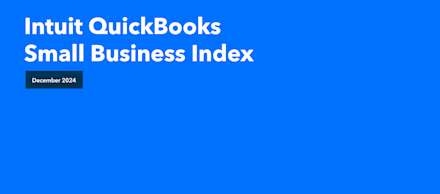
Intuit QuickBooks Small Business Index, December 2024
Simple, smart accounting software - no commitment, cancel anytime

TAX AND PENSIONS
As a UK taxpayer, once you start earning above £100,000 a year your personal tax rate and Personal Allowance will begin to change, and you will need to be aware of how these changes can affect your earnings in order to maximise your income.
You may have heard about the 60% tax bracket for high earners. This unofficial tax-rate can significantly impact how much you take home each month, but how is this figure calculated? And why do high earners lose their Personal Allowance?
In this blog from QuickBooks, we have provided everything you need to know about the tax implications of earning over £100k.
Once a person hits the £100,000 income mark, they may begin to lose their standard Personal Allowance of £12,570 at a rate of £1 for every £2 they earn above £100,000, continuing until you reach £125,140 when it will be completely lost, and any further earning up to £125,141 will continue to be taxed at 40%. Through the loss of your Personal Allowance, this adds an additional 20% tax on any earnings between £100,000 and £125,141.
When all this is taken into consideration, the effective rate of tax you pay between these amounts is equal to 60%.
Confused yet? Don’t worry, we have provided a table below that explains these rates with each salary increase in 2024.
Income | Tax Rate | Type |
Up to £12,570 | 0% | Personal Allowance |
£12,571 - £50,270 | 20% | Basic Rate |
£50,271 - £125,140 | 40% | Higher Rate |
Above £125,141 | 45% | Additional Rate |
So, whilst the 40% tax bracket applies to all earnings between £50,271 and £125,140, the gradual loss of the £12,570 Standard Personal Allowance at a rate of 2:1 means you will eventually be paying 60% tax until you reach a salary of £125,141.
Here’s an example of how this would work in practice:
You earn £100,000
The following year you receive a pay rise to £102,000
The additional £2,000 is still taxed at the 40% rate
For every £2 earned above £100,000 you lose £1 of your tax-free Personal Allowance
At this 2:1 rate you have lost £1,000 of your total £12,570 Standard Personal Allowance
The £1,000 will also need to be taxed at 40%
40% of £1,000 is £400 to be paid in tax
You will now be taxed £1,200 (£800 from the £2,000 wage increase, and £400 from the £1,000 lost from Personal Allowance)
60% of £2,000 is £1,200
This tax rate will continue until you earn £125,141, at which point your tax rate will stabilise at 45% for the Additional Rate.
When you hear people talk about the ‘60% tax trap’, this is exactly what they are referring to - a tax rate that is officially only 40% on paper, but quickly rises to 60% through Personal Allowance losses.
As of April 2024, if your adjusted net income is above £150,000 a year then you are expected to complete a Self-Assessment as your income sources may be more complex than those earning below this amount. HMRC will also need to assess your earnings to calculate your tax based on how much of your Personal Allowance remains.
Registrations for Self-Assessment should be completed no later than the 5th of October if this is your first time completing a Self-Assessment, and you may incur penalties for late registration.
There are a number of ways you can reduce your overall tax liability by lowering your taxable income through tax-free contributions or receiving benefits that are taken from your salary before tax.
If you are earning £100k or above, it is important to understand how these methods work to try and avoid the unofficial 60% tax rate, although it is important to remember that your approach to tax efficiency cannot work indefinitely, and at a certain point this rate will be unavoidable once you earn over a certain amount.
Remember, your individual circumstances can change the way you are taxed or the methods you can use to lower your tax bill. You should always seek advice from a professional financial advisor before considering any changes to your income or expenses.
Contributing more to your pension could potentially be the most future-proof way of reducing your tax liability. Pension contributions are generally tax-free and taken from your salary before tax is calculated, therefore, increasing your contributions by any additional amount you make over £100,000 may avoid the ‘60% tax trap’.
For example, if you earn £105,000 you could increase your yearly pension contributions by £5,000 to bring your taxable earnings back down to £100,000. Through this method, it is possible to avoid higher tax bills in the short term, and guarantee a higher pension for yourself in the long-term. Some employers may also match your pension contributions, so £5,000 can quickly turn to an extra £10,000 in your pension pot each year.
Salary sacrifices consist of making an arrangement with your employer to pay for certain benefits out of your salary before it is taxed. This is a legally permissible way of reducing your overall tax bill, a method that any employee can use provided their employer allows it. Salary sacrifices can refer to a number of benefits such as pension contributions, childcare, vehicles, or more.
Agreement: The employer and employee agree on the terms of the salary sacrifice arrangement. This agreement should be documented, and both parties should be aware of the implications.
Reduction in Salary: The employee agrees to sacrifice a portion of their pre-tax salary. This means that the salary sacrifice amount is deducted from the employee's gross income before income tax and other statutory deductions are applied.
Non-Cash Benefits: Instead of receiving the sacrificed amount in cash, the employee may receive non-cash benefits such as technology, childcare vouchers, or other fringe benefits.
Tax Benefits: By sacrificing a part of their salary, the employee effectively reduces their taxable income. This can result in lower income tax, as the sacrificed amount is not subject to income tax.
Employer Savings: Employers may also benefit from salary sacrifice arrangements. For example, they may pay less in payroll tax and other employment-related taxes since the employee's taxable income is reduced. Additionally, some employers may offer benefits such as increased superannuation contributions as part of the arrangement.
Limitations: It's important to note that there may be limitations on the types of benefits that can be provided through salary sacrifice, and the tax treatment may vary depending on the country and local tax laws.
By taking a salary sacrifice you are effectively reducing your take home salary which, if done properly, could reduce your overall tax liability. For example, if your net salary is £102,000 you could take a salary sacrifice worth £2,000 a year, thereby allowing you to retain your Personal Allowance of £12,570.
Pension contributions
Travel cards
Cars, phones, computers, or tablets
Gym memberships
School and childcare fees
Annual leave
Company shares
Healthcare
Car parking
Completing a Self-Assessment over 150k? You can use QuickBooks to plan and prepare for your Self-Assessment with HMRC. Explore QuickBooks’ easy-to-use software to simplify your Self-Assessment and accounting processes today.
QuickBooks offers a free 1 month trial on all of our pricing plans, so you can be sure you are using the best tax software available before making a commitment.
*individual plan pricing accurate at time of writing
Disclaimer: While we aim to provide valuable insights and guidance, it is important to note that QuickBooks is an accounting software company, and the content provided in this blog is intended for informational purposes only. It should not be construed as financial advice or recommendations. Each individual's financial situation is unique, and decisions regarding income and expenses should be made in consultation with a qualified financial advisor or accountant who can provide personalised guidance tailored to your specific circumstances. QuickBooks does not assume any responsibility or liability for the accuracy, completeness, or suitability of the information presented herein. Use of this information is at your own risk. Always seek professional advice before making any financial decisions.
9.00am - 5.30pm Monday - Thursday
9.00am - 4.30pm Friday